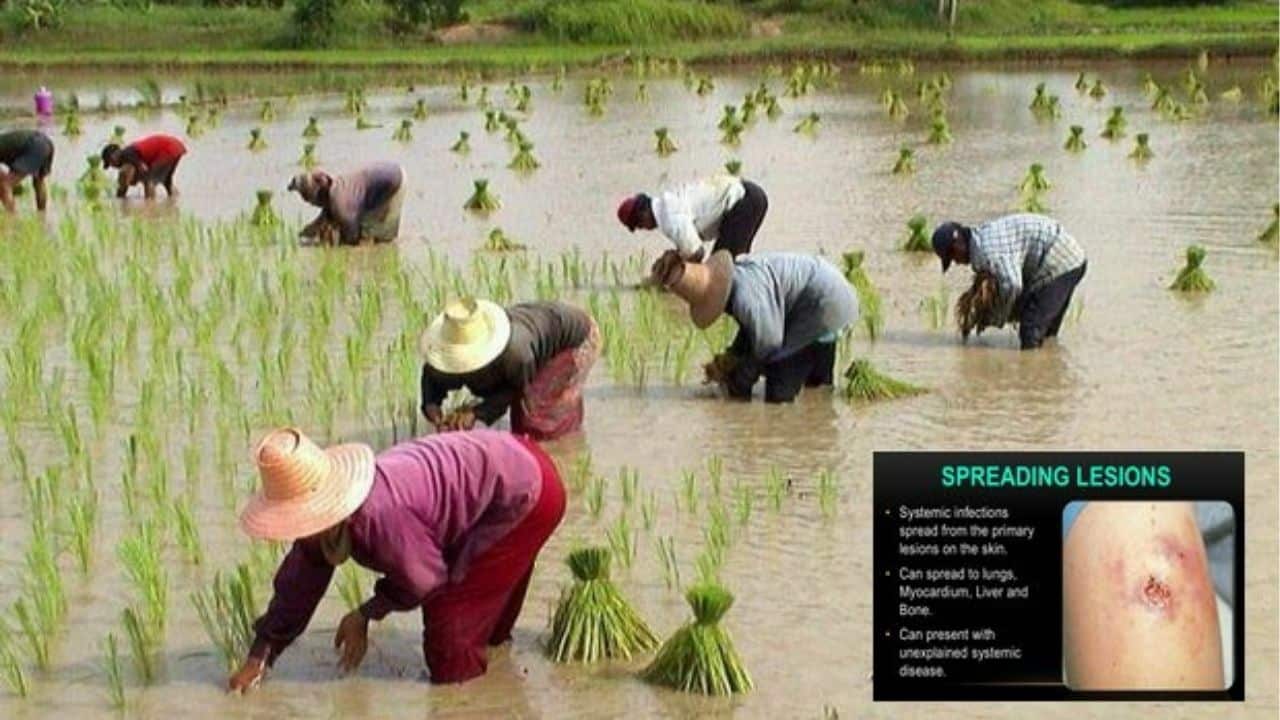

The Ministry of Public Health has issued a warning about the melioidosis disease, which has resulted in 72 deaths and 1,676 infections.
The disease can be contracted through contact with contaminated soil or water, or even by inhaling contaminated dust. It is advised to avoid wading through water or mud and to consume only cooked food. If symptoms develop, medical attention should be sought immediately.
Yesterday, July 10, Director General of the Department of Disease Control (DDC) at the Ministry of Public Health, Dr Panumas Yanawet Sakul, highlighted the ongoing rainfall in certain areas, leading to waterlogged and damp conditions.
Those residing in flood-prone regions, farmers, and those working with soil and water are at heightened risk of contracting melioidosis.

The bacteria causing the disease thrive in soil and water, entering the body through skin breaks, ingestion of contaminated water or food, or inhalation of dust. Symptoms typically appear within four to nine days, but can manifest as early as one day or as late as a year, depending on bacterial exposure and individual immunity.
The symptoms of melioidosis are non-specific and may range from localised infections to widespread body infections, showing similarities with other infectious diseases.
Common symptoms include fever and respiratory issues like coughing and shortness of breath. In severe cases, abscesses might develop on the skin, lungs, liver, or spleen, often leading to bloodstream infections, which complicate diagnosis, requiring laboratory culture tests for confirmation and treatment.
According to Dr Panumas, data from the Digital Disease Surveillance system of the Epidemiology Bureau from January 1 to July 9 indicates 1,676 cases and 72 fatalities.
The highest number of cases was found in those aged 60 and above (693 cases), followed by those aged 50 to 59 (449 cases), and those aged 40 to 49 (247 cases).
The majority of cases are in northeastern Thailand, with Mukdahan having the highest incidence rate at 15.82 per 100,000 population, followed by Yasothon (11.10), Bueng Kan (9.77), Nakhon Phanom (9.66), and Buriram (8.64), reported KhaoSod.

Deputy Director General of the Department of Disease Control, Dr Direk Khamphan, outlined measures to prevent melioidosis.
These include avoiding direct contact with soil and water, using protective gear such as rubber boots and gloves when necessary, and cleaning thoroughly with soap and water after exposure.
Wounds should be disinfected promptly, and contact with soil and water should be avoided until healed. Consuming well-cooked food and drinking standard-packaged or boiled water is recommended.
Avoid inhaling dust and exposure to rain. Immediate medical consultation is advised for persistent high fever over two days, especially for farmers and diabetic individuals.
For more information, contact the DDC hotline at 1422.
The story Melioidosis kills 72: Thai health ministry issues urgent warning as seen on Thaiger News.
